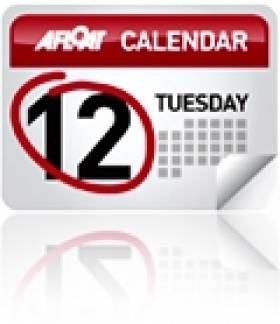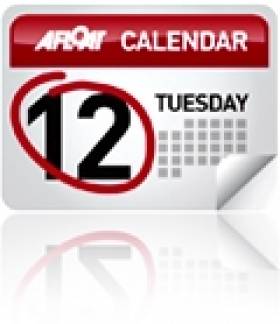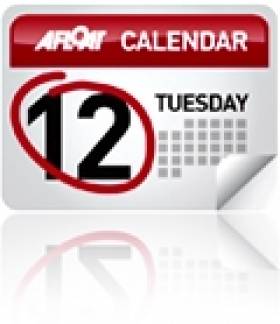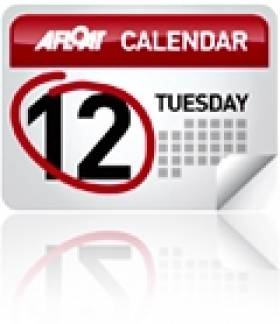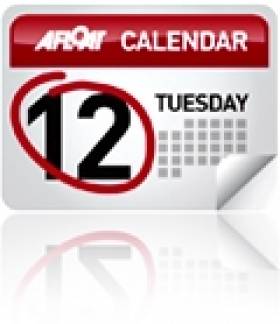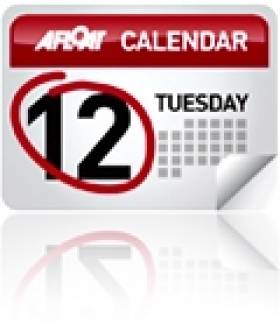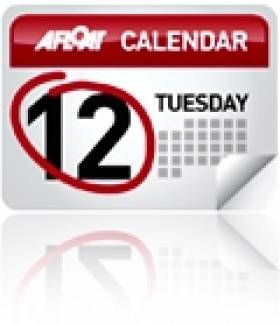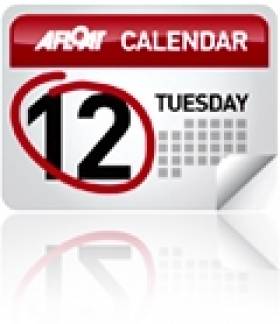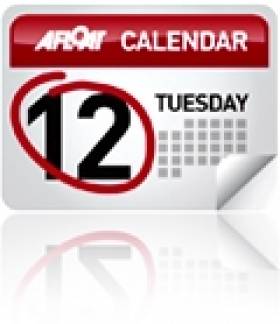Displaying items by tag: Maritime Lectures
Maritime Institute Lectures Programme Returns
#Lectures- It's that time of the year again as the Maritime Institute of Ireland's Autumn/Winter lecture programme starts next week (Thursday 18 Sept).
The inaugural lecture of the season titled 'Rochsay Castle shipwreck-the Dublin Connection 1831' is to be presented by Seamus O Maitiu.
All lectures take place in Dublin city centre at the Stella Maris Club, Beresfort Place beside Bus Aras. Likewise all lectures commence at 8.00p.m. sharp and entry is by voluntary donation to help meet overheads of the M.I.I. which runs the National Maritime Museum (NMMI) in Dun Laoghaire.
The organisers would be pleased for anyone to kindly forward details about the lecture programme, which is held on the third Thursday of each month. For further information contact Barney Yourell, Lectures Officer of the Institute on 087 900 7466 or (01) 847 6118
Public transport: The nearest DART stations are Connolly Station and at Tara Street in addition to the LUAS (Red) line stop at Busáras. Car parking is located in the Irish Life Mall (ILAC) on Lower Abbey Street.
For further information about the National Maritime Museum, which has a gift shop and café located in the former Mariners Church Dun Laoghaire, visit: www.mariner.ie
Lecture: "Beef, Butter and Pork-Cork Shipping Trade During the American War of Independence 1775-83"
#Lecture – "Beef, Butter and Pork-Cork Shipping Trade During the American War of Independence 1775-83" is to be presented by Joe Varley, maritime historian next week, Thursday 6 March at 20:00 in Poolbeg Yacht and Boat Club, Ringsend, Dublin.
All are welcome to the 2013/2014 lecture series organised by the Members of Glenua & Friends which is held in the intimate venue located close to the busy heart of Dublin Port. Entry fee of €5 is in aid of the RNLI. For further detail contact: 087 2129614
To lecture is about the mid-18th Century Cork merchants who became very wealthy by exporting heavily-salted beef, pork and butter. The main markets were in Spain, Portugal and in the West Indies.
However, the American war also created a military demand for these exports. This demand had an immediate and long-term effect on business and shipping in the port of Cork. These changed circumstances form the theme for this illustrated presentation.
Joe Varley has a reputation for being an engaging and entertaining lecturer that springs from his seagoing experience as a radio officer, his time as a sailing instructor with Glenans and his long-serving membership of the Maritime Institute of Ireland.
In 2012-2013, he completed an M.A. in Naval history at the University of Exeter. The research for this lecture was taken from academic work presented at that time.
Lecture: The "Kerlogue"
#LectureKERLOGUE – Maritime Institute of Ireland (M.I.I.) autumn/ winter lecture series continues with the next lecture about the "Kerlogue" presented by Pat Sweeney, Maritime historian and author.
During WW2 (1943) Wexford Steamship Co.'s small coaster Kerlogue” hauled 168 injured and shipwrecked German sailors from the icy waters of the Bay of Biscay .
The lecture is this Thursday 17 October (starting at 8pm) and as usual takes place in the Stella Maris Seafarers Club on Beresford Place, Dublin City Centre. The venue behind the Customs House is close the Busaras.
All are welcome to attend the evening where a bar and refreshments are available. A voluntary contribution is payable to the door to the M.I.I. which runs the National Maritime Museum (NMMI) in Dun Laoghaire).
The lecture organisers would be pleased for anyone to kindly forward details about the lecture programme, held monthly (third Thursday).
Public transport to Stella Maris Seafarers Club: The nearest DART stations are Connolly Station and at Tara Street in addition to the LUAS (Red) line stop at Busáras. Car parking is located in the Irish Life Mall (ILAC) on Lower Abbey Street.
For further information in general about the National Maritime Museum of Ireland (Dun Laoghaire) visit www.mariner.ie
Lecture: The People of "Lady Nelson"
#LECTURES – Following last month's opening lecture, the Killiney & Ballybrack Historical Society will be hosting a talk presented by Jim Robinson on 14 November.
The topic "Lady Nelson" The People of Lady Nelson, was a vessel that traded between Dublin and Spain and in which was wrecked on the Skelligs Rock in 1809. The lecture will give also give an account of the trade with Spain at that time.
The lecture programme which runs till April 2013, are as usual held on the second Wednesday of each month and in the upstairs lounge of the Graduate Pub in the Killiney Shopping Centre on Rochestown Avenue.
An admission fee €3 applies for each talk and refreshments will be provided. Should you be interested in joining the society, the annual subscription is €15 (€20 for couples/family).
For further details please contact: Richard Dolan 087 618 1212, Anna O'Connor (01) 285 2817 and Tom Moran (01) 284 0524.
National Heritage Week Features Maritime Lectures
#MARITIME LECTURES – Next weekend sees the annual National Heritage Week (18-26 August) take place. As part of the week-long event, the Maritime Institute of Ireland is organising a programme of maritime themed lectures on the final day (Sunday 26th).
The line-up of five lectures is timed between 12 noon and the final lecture is scheduled at 6pm. The wide-ranging topics and speakers of the lecture programme will be held at the Dun Laoghaire Club, 3 Eblana Avenue, off Marine Road, noting the nearby landmark of the St. Michaels Church spire.
There is an entrance free and a recommended donation €10. For further information contact Barney Yourell 087-9007466 and www.mariner.ie/maritime-lectures-national-heritage-week-2012
For information on the rest of the diverse programme during the heritage week visit www.heritageweek.ie
Lecture: Round Ireland 2011 Over Two Months
#MARITIME LECTURE - This 'Thursday's Night Talk' organised by the Dun Laoghaire Motor Yacht Club (DMYC) is entitled 'Round Ireland 2011 Over Two Months'. Tomorrow's talk starts at 8pm and is to be presented by Gary Owens.
None members are also welcome to attend the winter lecture talks, held on Thursdays which will continue until April, noting the theme of the talks are not exclusively marine orientated. For further information Tel: 280 1371 and by visiting www.dmyc.ie
The DMYC is situated on the West Pier, close to Salthill and Monkstown DART station and car-parking is available beside the premises and also at the nearby Coal Harbour.
Lecture: Diesel Engine Care & Maintenance
#LECTURES – The winter talk's series organised by the Dublin Bay Old Gaffers Association (DBOGA) continues at the Poolbeg Yacht and Boat Club, Ringsend, Dublin.
This month's lecture entitled 'The Second Chapter –On Diesel Engines Care and Maintenance' presented by Sean Walsh is to be held next Tuesday 17th January, starting at 8 pm. All are welcome to the evening with proceeds going to the RNLI.
In total there are five talks in the winter/spring 2011-2012 program, which started last October and will run to March. For further information about the DBOGA click HERE and the PYBC visit www.poolbegmarina.ie
Fashion Extravaganza Evening and Lecture Maritime Morning
10 a.m. 'Dublin Port – Past and Present'– Niall Dardis
11 a.m. 'The Blood Red Badge: Dublin Dockers, Seamen and their Unionisation' – Francis Devine
12 Noon 'Liffey Ships' – Pat Sweeney
All are welcome to attend the lecture morning, noting the nearest DART station to the venue is at Pearse Street. For further information about other events, activities and developments of the M.I.I. visit www.mariner.ie
Lecture: Dublin’s Own Titanic-The 'Tayleur'
The venue and is the Dún Laoghaire College of Further Education on Cumberland Street where a lecture series programme is run by the Genealogical Society of Ireland (GSI). For further information on other forthcoming GSI lectures: www.familyhistory.ie/



























